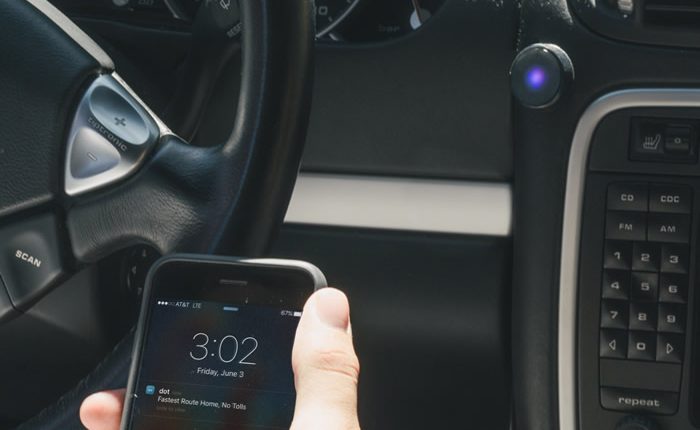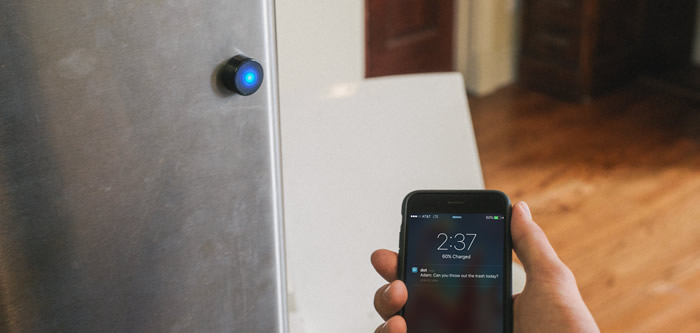How to receive physical smartphone push notifications
Already crushing its $20,000 goal, a group of UC Berkeley engineers and entrepreneurs have formed IoTa Labs and launched their physical push notification “dot” on Kickstarter. Dot uses precise location tracking to make your smartphone’s notifications ‘highly contextual’.
Simply stick a dot to somewhere you frequent, for example, in the car, workplace or home, and assign notifications to that dot. Via Bluetooth, the dot will then communicate with the smartphone to inform it of your location, and the relevant notifications will then be sent to the smartphone.
Contextual app launching
Dot enables your smartphone to open up apps you frequently use in specific areas. Imagine getting into your car and instantly being routed home as your favorite Spotify playlist blasts through the speakers. Dot uses context to streamline your life.
Digital post-it notes
Not only does the Dot just work as an App Launcher, but it can also be used to communicate with others who are nearby the Dot also.
Location notifications
Dot can enable your smartphone to send you updates when you walk into a new area. Use this as a personal secretary when you walk into work in the morning or as a chore reminder when you enter your garage.
LED
Dot changes color when you walk into range, making it the ultimate signal shortcut. Dot can track reminders, weather, stocks, food spoilage, energy conservation, etc.
Smart home control
With precise location tracking you can control all your smart home devices by walking into a room. Lights can turn on or off, the coffee machine can start, and the thermostat can adjust to your preferences. Dot is a flexible, inexpensive alternative to smart home controllers.
The technology behind the Dot
- proximity sensor
- Dot has a Bluetooth 4.0 proximity sensor that can precisely track your location with 200ft. of range. All you have to do is place it somewhere important and determine what kind of information you would want to receive in that area.
- software platform
- The proximity sensor communicates with our smartphone application (iPhone and Android) so that when you walk into an area, different triggers execute. It’s modeled after IFTTT; users can make anything happen based on location tracking. There are different apps that a user can tie to their Dot. It’s extremely easy to swap apps in and out and customize settings.
- IoTa have improved upon IFTTT by building a free app store. Users can submit and download apps created using our Dot API. Most of the cases made are ~100 lines of Javascript
- Internet of Things enabled LED
- The final hardware feature of the Dot is the LED that changes color based on different information. The IoT LED light allows your smartphone to convey relevant information at a glance. The goal is to filter existing information using context, giving you the shortest, sweetest message you need.
“Context makes our smartphones exponentially smarter.”
More information: Kickstarter



Comments are closed, but trackbacks and pingbacks are open.